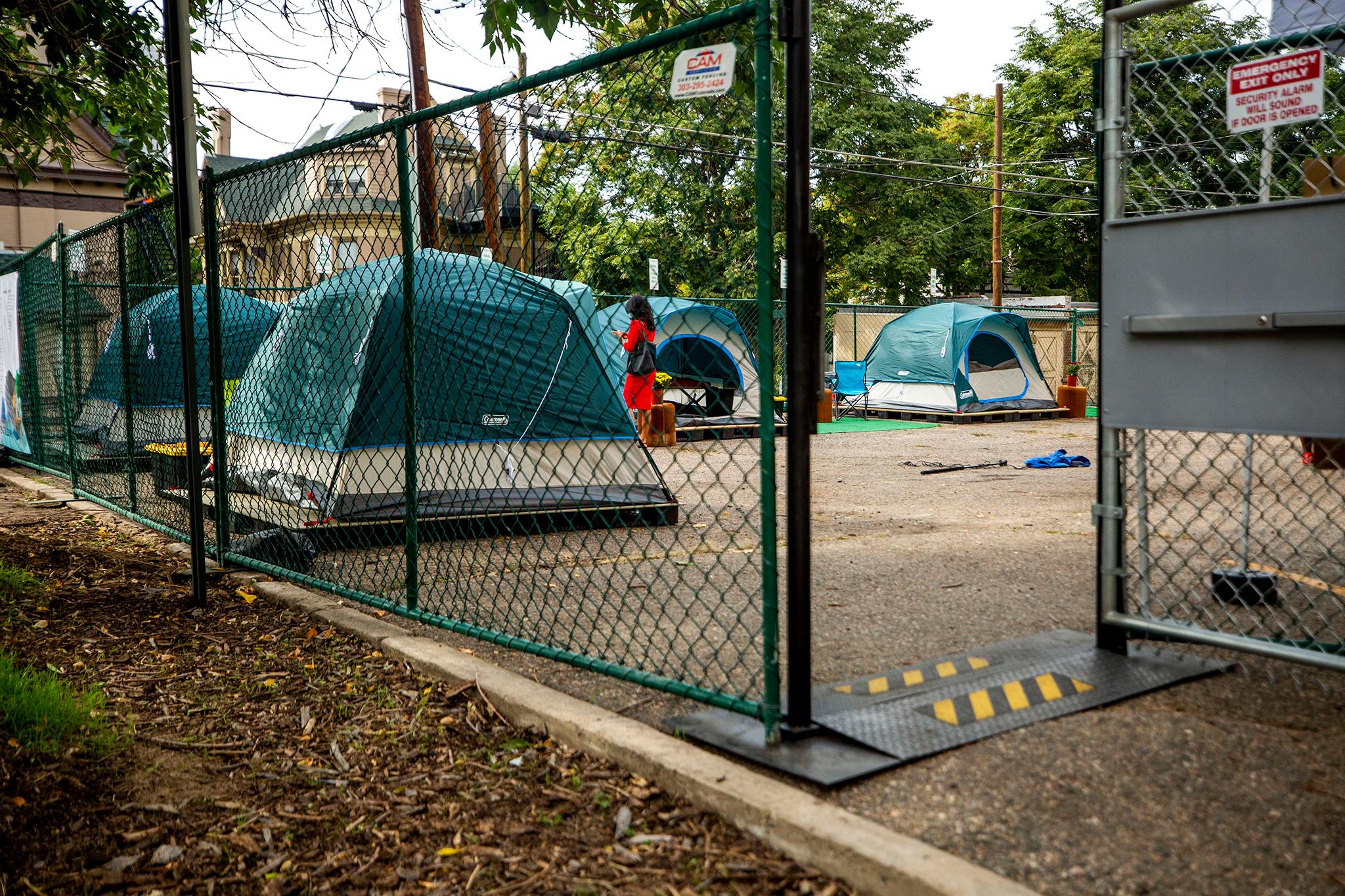The first site to be proposed for sanctioned, serviced camping in Denver was the Coliseum parking lot. District 10 City Councilman Chris Hinds remembers thinking then that the tarmac would be uncomfortably hot in the summer and cold in the winter.
Hinds was reassured when he saw that tents were a few inches off the ground, set up on pallets to take advantage of the insulating properties of air, in a demonstration camp erected in a church parking lot in his district.
The second thing Hinds noticed was that a portable toilet at the site was accessible to people using wheelchairs.
"Someone's thinking about things," said Hinds, who uses a wheelchair.
Hinds was among council members who toured the demonstration camp Friday. Four new tents were set 10 feet apart in the parking lot of Belong Church at 1615 Ogden Street. Members of the public can tour the site Saturday from 10 a.m. to 4 p.m. and Sunday from noon to 4 p.m. Visitors to the site can put questions to representatives of the Interfaith Alliance of Colorado, Colorado Village Collaborative and the Radian architecture firm, the three nonprofits that proposed that Denver adopt sanctioned camping as part of its emergency pandemic response.
In a city where increases in the cost of housing have outpaced earnings for years, more people have lost their homes because of the economic slowdown that has accompanied the coronavirus. Shelters, meanwhile, have had to reduce beds to create room for disease-fighting social distancing. In June, Mayor Michael Hancock reversed his long-held opposition to allowing people to live on the streets and said several sanctioned camps could be set up as a temporary measure.
The Coliseum parking lot was taken out of consideration as a sanctioned camping site following community opposition. A second proposed site, alongside a library in Five Points, also was abandoned following a public outcry. While the search for a site continues, the Interfaith Alliance, the Colorado Village Collaborative and Radian are trying to show Denverites what a sanctioned camp might look like and talk to them about how one would work.
"It's perfectly understandable for people to have concerns about something they've never seen before," said Cole Chandler, executive director of the collaborative. "Right now we're having a broad, public education conversation."
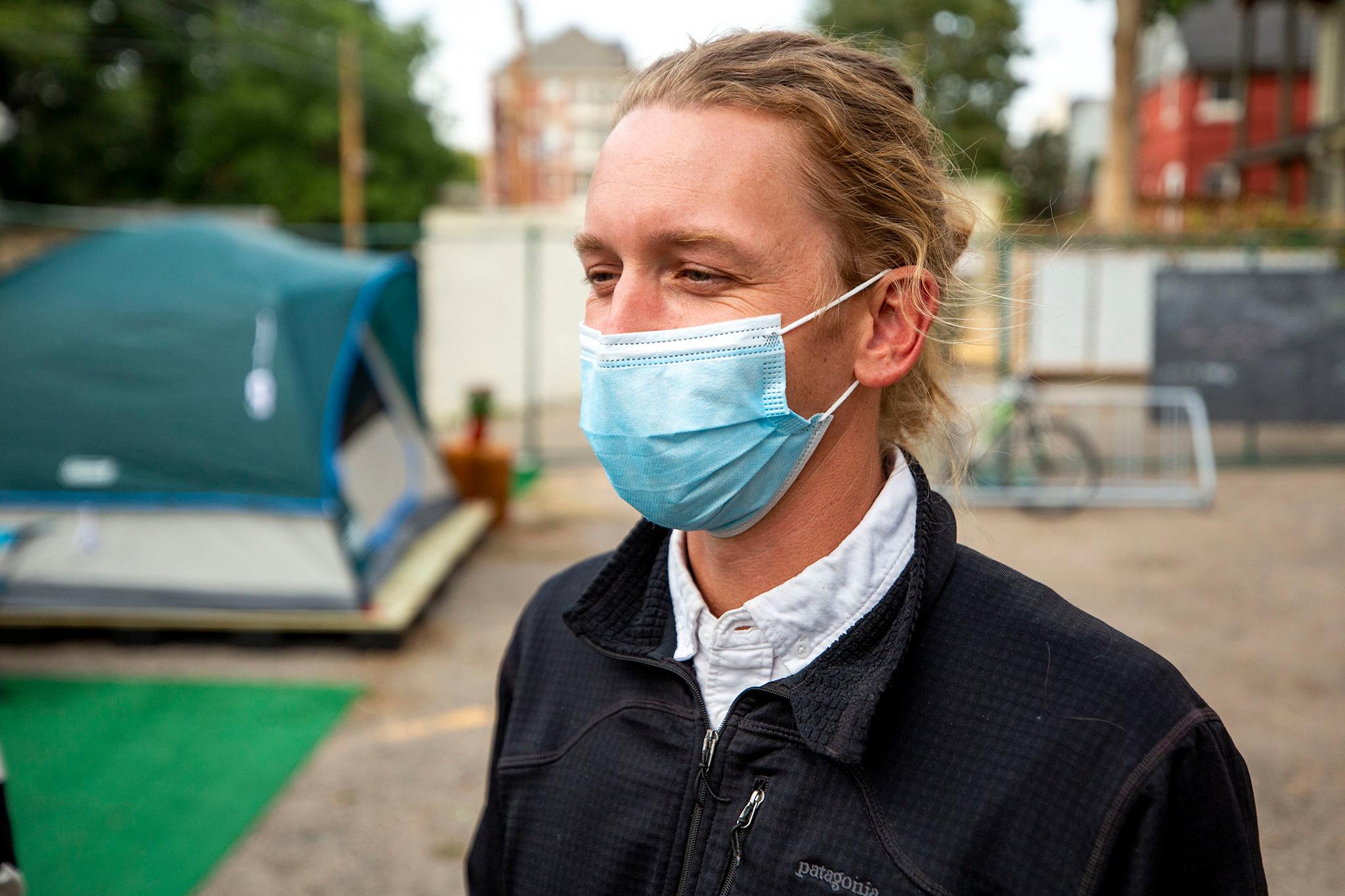
Grey Waletic, a designer for Radian, spent 30 minutes talking with Councilman Hinds.
"I wanted to connect with people and see what would be the best way to make it accessible," Waletic said, adding that ramps might be added to the tent platforms, or bars inside the tents that people in wheelchairs could use to lift themselves into shelter.
The sanctioned camps, also known as safe outdoor spaces, would be equipped with bathrooms and showers. Trash would be collected regularly and security provided. People experiencing homelessness would be supported in the camps with job, mental health, substance abuse and other counseling. The Colorado Village Collaborative has raised money from donors for the first camp, including buying tents big enough for four people but that will each shelter no more than two people to maintain social distancing. The Colorado Village Collaborative was looking for a site where it could accommodate 50 people.
"A lot of folks thought, 'Oh, they're just going to sanction what's already going on," said Cuica Montoya, who was hired by the Colorado Village Collaborative to manage the first of what are expected to be several sanctioned camps in Denver.
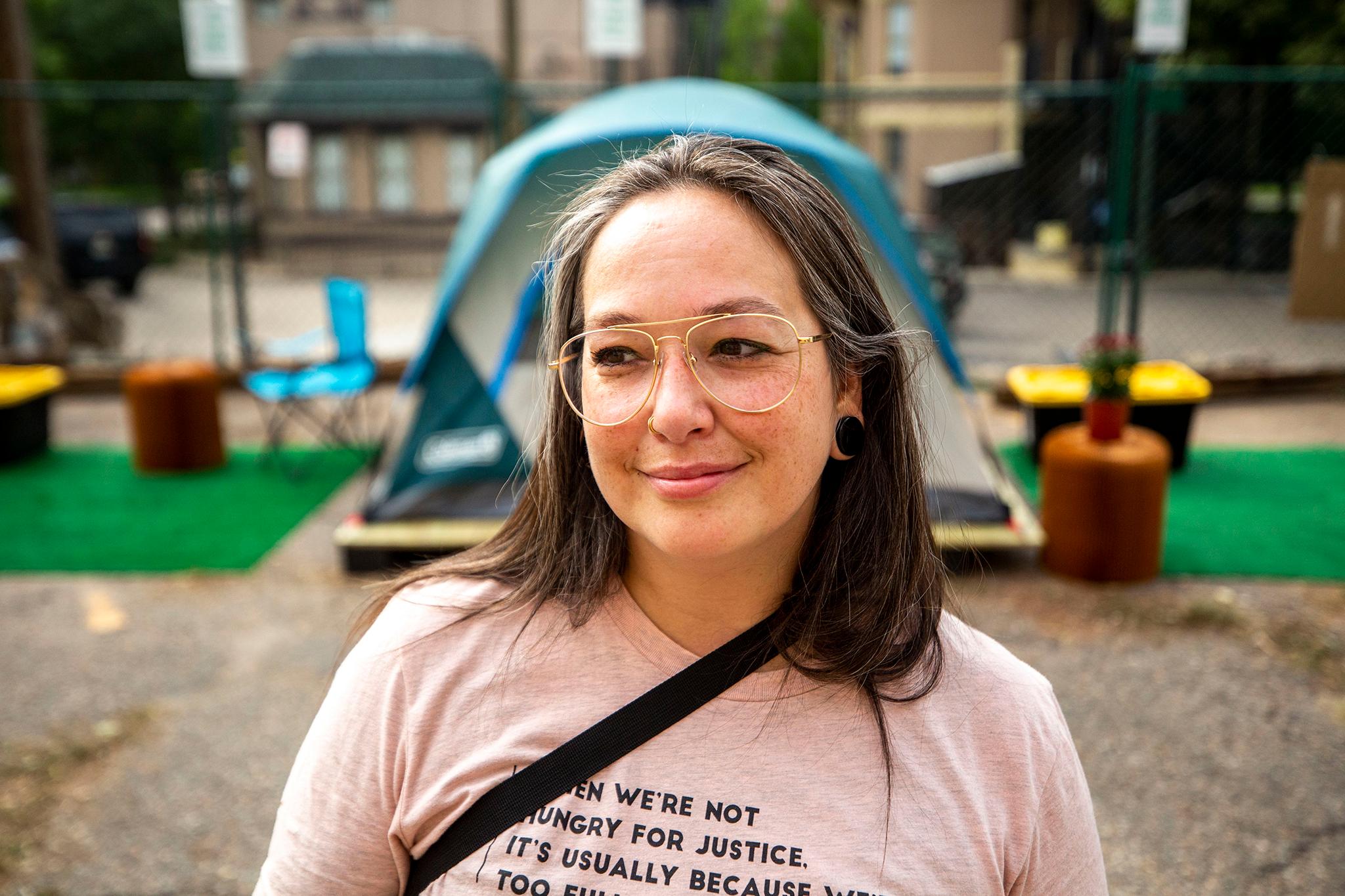
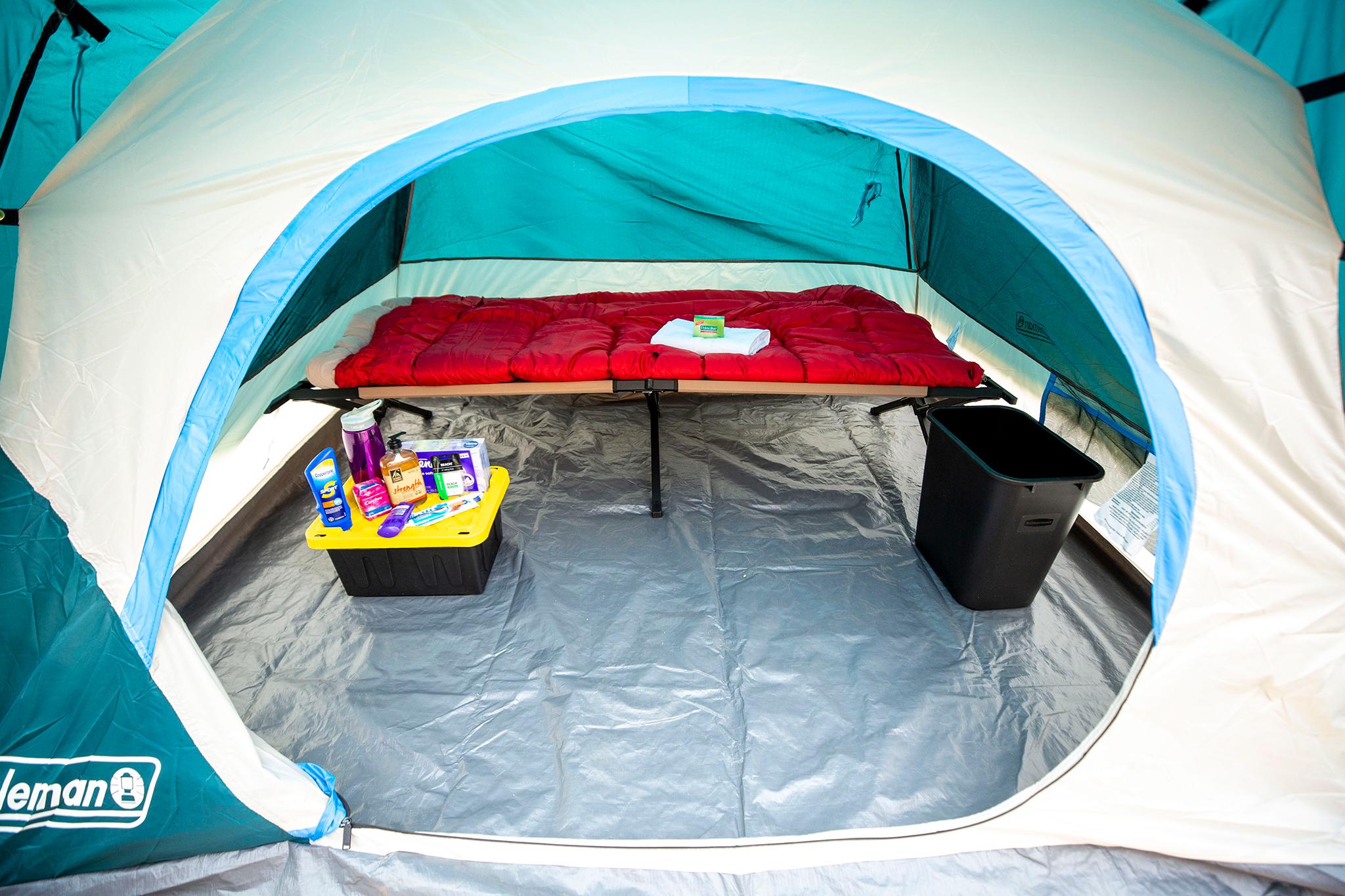
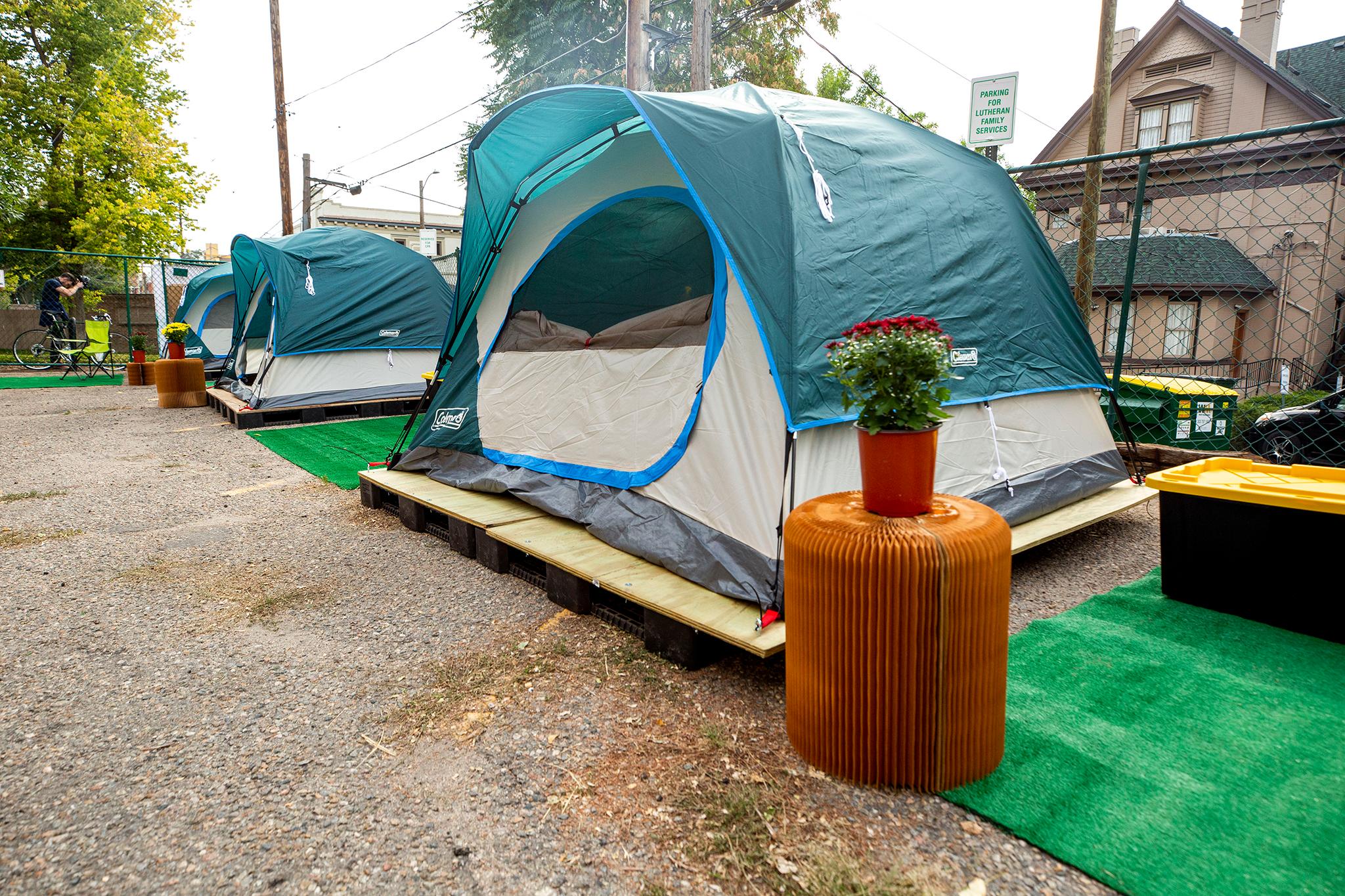
The demonstration camp in the Belong Church parking lot had none of the trash and disorder often associated with unsanctioned camping. It also had none of the people. Chandler said some of the opposition to sanctioned camping stems from antipathy toward people experiencing homelessness.
"Really, at the heart of it, it is about the people," he said.
Chandler said residents of homes near Belong Church had expressed concern when they saw the tents going up, worried that a real camp was being established. The demonstration camp also drew attention from people experiencing homelessness who are living in the neighborhood.
"Everybody's walking by doing a double take. They're walking the same streets, They're walking the same sidewalks," Chandler said. "We have to understand that we're all part of the same community."
Jesse West has been living for several weeks just east of Belong Church on a patch of pavement alongside an office building. When he saw the demonstration camp on Friday, he thought it looked "like a hotel."
West said that he hoped sanctioned camps will help people move to permanent housing.
"Everybody that I know is waiting on housing," he said.
West settled next to the office building after a cleanup of an encampment near Morey Middle School scattered people experiencing homelessness. West, 22, moved to Denver from Michigan almost three years ago to stay with his father, who had recently secured an apartment thanks to a federal housing subsidy. His father's lease did not allow him to have a roommate, and West ended up on the streets after a few months.
"I'm just looking for stability," West said. "And I'm not finding any."

